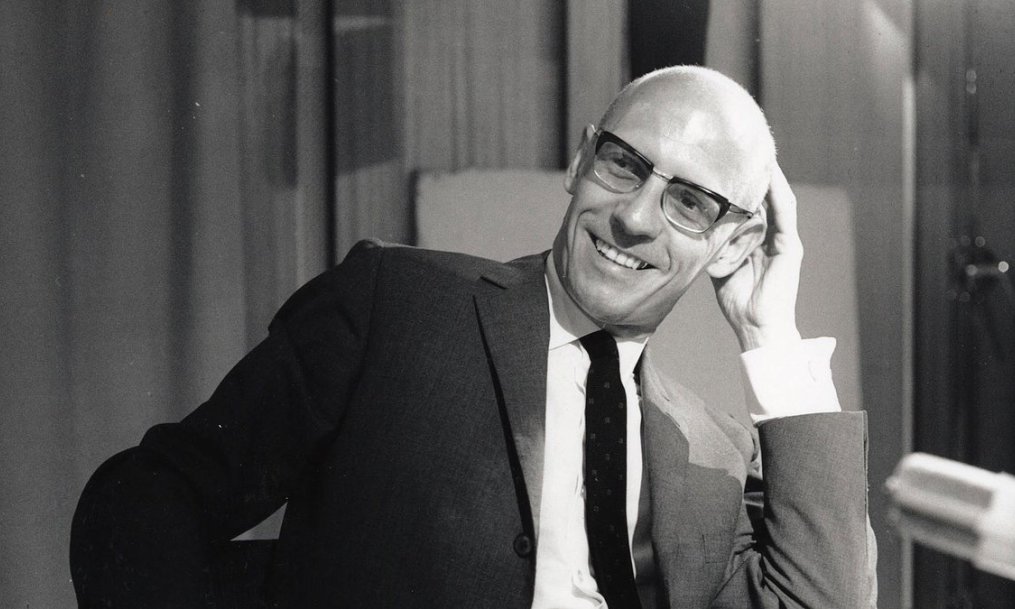Science
Philosophy Is Being Hijacked by Woke Twitter Mobs
Van Leeuwen and Herschbach wrote a statement on Facebook reiterating that the review process had been carried out properly, and declaring, “Efforts to silence unwelcome opinion… are doing a disservice to the community.”

Philosophers tend to be highly influenced by their environment, and can often be found rationalizing instead of critically examining the conventional views of the people around them. But if anything warrants philosophical scrutiny, surely it is our national taboos. As a philosopher of biology, one taboo is of particular interest to me: the taboo on considering the possibility that genes play a role in group differences in psychological traits. So I wrote a paper arguing that, while nothing can be definitively proved, there is strongly suggestive evidence that genes are involved in group differences, and we should stop suppressing and censoring research into this topic.

I submitted the paper to Philosophical Psychology—a respected journal that publishes work on the connection between philosophy and psychology, which at the time was co-edited by Mitchell Herschbach (a philosopher) and Cees van Leeuwen (a psychologist). To my pleasant surprise, I received two positive referee reports along with a request for revisions. After two rounds of review, the paper was accepted and published in the January 2020 issue of the journal.
The paper was accompanied by an Editors’ Note written by van Leeuwen and Herschbach, saying:
The decision to publish an article in Philosophical Psychology is based on criteria of philosophical and scientific merit, rather than ideological conformity… In sum, Cofnas’ paper certainly adopts provocative positions on a host of issues related to race, genetics, and IQ. However, none of these positions are to be excluded from the current scientific and philosophical debates as long as they are backed up with logical argumentation and empirical evidence, and they deserve to be disputed rather than disparaged.
Needless to say, heterodoxy about politically sensitive issues is not always well received in academia, so it was gratifying to see the editors of an important journal taking a stand for free inquiry. “2020 is gearing up to be the best year ever,” I thought to myself.
It didn’t take long for the paper and Editors’ Note to come to the attention of the wokerati on Twitter. Macquarie University philosophy professor Mark Alfano deemed my paper “shit” and announced his plan to “ruin [my] reputation permanently and deservedly.” He started a petition on change.org demanding an “apology, retraction, or resignation (or some combination of these three)” from the journal editors. A number of philosophers—many of whom did not even read the paper—joined the campaign to get it retracted and/or smear me. University of South Carolina professor Justin Weinberg promoted Alfano’s petition on his widely read philosophy blog, Daily Nous. He also published a guest post that falsely and preposterously claimed that I defended “segregation” and “apartheid schemes.”
But the editors of Philosophical Psychology stood firm. Van Leeuwen and Herschbach wrote a statement on Facebook reiterating that the review process had been carried out properly, and declaring, “Efforts to silence unwelcome opinion… are doing a disservice to the community.”
A group of six philosophers and three anthropologists—including Mark Alfano and City University of New York philosophy professor Massimo Pigliucci—submitted a comment on my paper to Philosophical Psychology, pedaling some familiar fallacies and strawmen. First, they proclaim that I think racial groupings are “discrete”—wrongly suggesting that my argument requires that there should be no overlap of any kind among races, or that mixed-race people don’t exist.
Then they throw out the old canard that race can’t be real because humans share 99.9 percent of their DNA. They don’t mention that there are three billion base pairs in the human genome, and therefore three million base pairs where we are not identical, which could be the basis of race differences. (The average person’s genome actually differs from a reference genome at 4.1 to 5.0 million sites, and has structural variants affecting approximately 20 million bases.) In any case, crude comparisons of genetic similarity provide little information about the magnitude or significance of differences. We are 99.1 percent identical with chimpanzees in terms of functionally important DNA, but if that’s all you told a space alien about the difference between us and chimps it would be pretty misleading. Whether the 0.1–0.2 percent difference among humans generates meaningful race differences is an open question.

Then they say, “Allegedly, Cofnas felt compelled to write this article because he thinks that scientists’ and philosophers’ moral qualms have led them to abandon research into average IQ differences between ‘races’… But this perspective is significantly out of tune with reality… Journals like Intelligence and Psych frequently publish contributions exploring the issue.” In this case it seems they might have mixed up my paper with their own notes! I wrote: “Research supporting both hereditarian and environmentalist explanations of race differences is routinely published in major psychology journals, particularly in psychometrics journals like Intelligence and Personality and Individual Differences.” But I pointed out that work supporting hereditarianism (the view that genes play a role in race differences) can be much more difficult to publish and disseminate, and is almost never funded. Many prominent scientists have said openly that it is immoral to study this topic. Scholars who are seen as supporting hereditarianism are regularly fired from their jobs. Examples of the last phenomenon from just the past year include Noah Carl (fired from his postdoctoral fellowship at the University of Cambridge), Bo Winegard (fired from his position as assistant professor at Marietta College), and Stephen Hsu (forced to resign from his position as senior vice president for research and innovation at Michigan State University). Those who aren’t fired still have to deal with an army of Mark Alfanos trying to “destroy [their] reputation.”
There is, of course, nothing wrong with my critics writing a reply to me—even a weak one. And the editors of Philosophical Psychology were perfectly willing to publish it. Van Leeuwen and Herschbach just asked the authors to focus their attacks on me (Cofnas) rather than casting aspersions on the competence of the editors themselves, and gently suggested that they address the philosophical literature supporting my position. Van Leeuwen and Herschbach also mentioned that, in accordance with normal scholarly practice, I would be invited to write a rejoinder. This enraged Alfano and company. Pigliucci published an article on Medium titled, “The Editors of Philosophical Psychology Stalled and Rejected Our Commentary to an Unscientific and Racist Publication,” falsely claiming that it had been “rejected.”
Then, out of the blue, van Leeuwen released a statement announcing his resignation:
After 25 years at the journal, I am resigning as editor of Philosophical Psychology. The reason is the imminent publication of a commentary bypassing editor moderation. While my co-editor and part of the editorial board felt that a stream of insinuations and personal attacks on social media left them with no better choice, my resignation should be seen as taking a stand for an independent, non-partisan forum for philosophical debate.
Apparently Herschbach and members of the editorial board were intimidated by social media pressure, and agreed to publish Alfano et al.’s comment without revision and to deny me the right of reply.
The remaining editor-in-chief, Mitchell Herschbach, who previously coauthored two separate statements defending the review process and the decision to publish my paper, published a groveling apology. He wrote that the criticism
has led me to change my views from the ones expressed in the coauthored Editors’ Note. It has also motivated me to work to implement procedural improvements so that, going forward, the journal better handles papers on controversial topics having sensitive moral and socio-political implications… When sent out for peer review, papers on controversial topics merit going beyond our standard procedure of two external reviewers.
If van Leeuwen is right, this change in policy was triggered by “a stream of insinuations and personal attacks on social media.”
Well, 2020 turned out not to be the best year ever, and the fiasco at Philosophical Psychology is far from the worst of it. But the fact that social media mobs can dictate the range of views allowed to be defended in philosophy journals is no small matter. What is the point of philosophy anyway?






